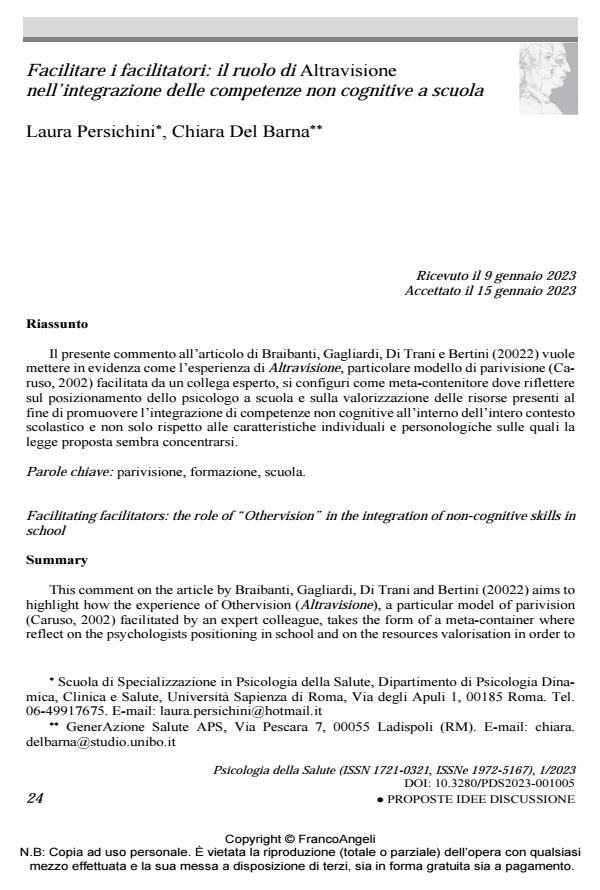Facilitating facilitators: the role of "Othervision" in the integration of non-cognitive skills in school
Journal title PSICOLOGIA DELLA SALUTE
Author/s Laura Persichini, Chiara Del Barna
Publishing Year 2023 Issue 2023/1
Language Italian Pages 9 P. 24-32 File size 205 KB
DOI 10.3280/PDS2023-001005
DOI is like a bar code for intellectual property: to have more infomation
click here
Below, you can see the article first page
If you want to buy this article in PDF format, you can do it, following the instructions to buy download credits

FrancoAngeli is member of Publishers International Linking Association, Inc (PILA), a not-for-profit association which run the CrossRef service enabling links to and from online scholarly content.
This comment on the article by Braibanti, Gagliardi, Di Trani and Bertini (20022) aims to highlight how the experience of Othervision (Altravisione), a particular model of parivision (Caruso, 2002) facili-tated by an expert colleague, takes the form of a meta-container where reflect on the psychologists positioning in school and on the resources valorisation in order to promote the integration of non-cognitive skills within the entire school context and not only with respect to the individual and personological feature on which the proposed law seems to focus.
Keywords: parivision, training, school.
Laura Persichini, Chiara Del Barna, Facilitare i facilitatori: il ruolo di Altravisione nell’integrazione delle competenze non cognitive a scuola in "PSICOLOGIA DELLA SALUTE" 1/2023, pp 24-32, DOI: 10.3280/PDS2023-001005